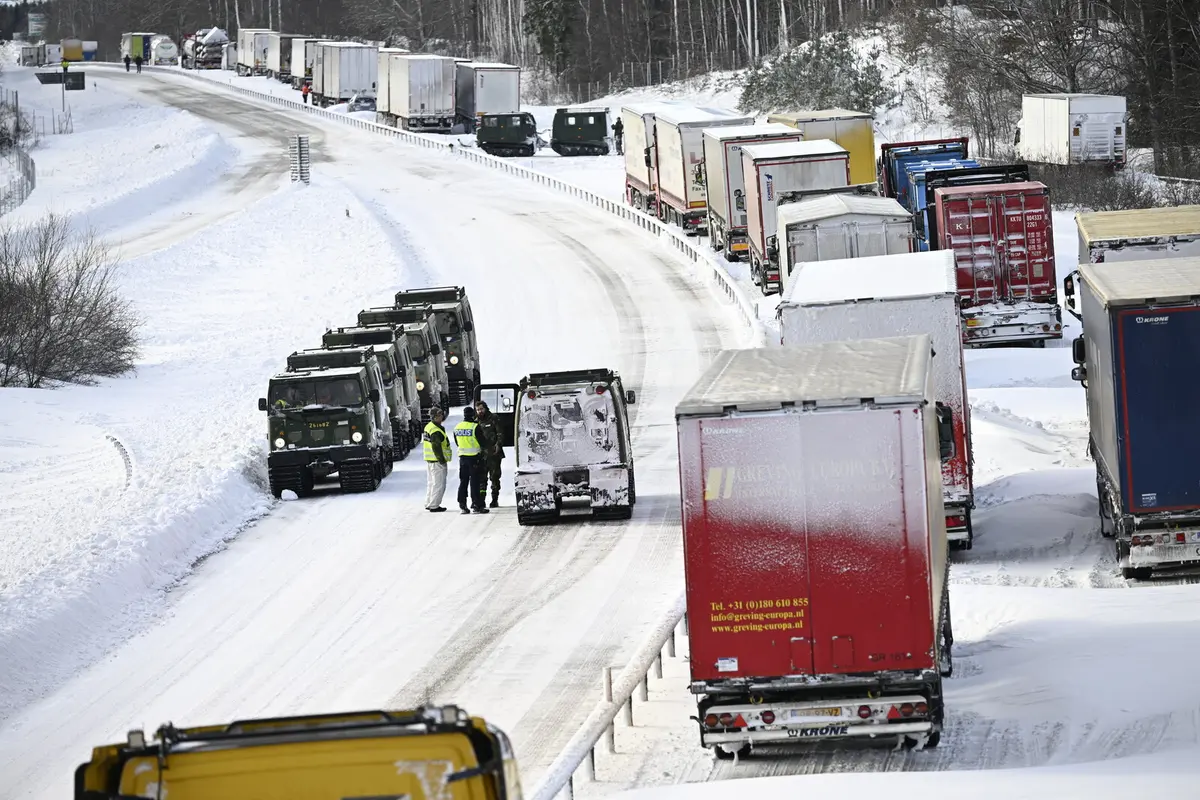According to statistics from the EU Commission, Sweden barely meets the EU's minimum requirements when it comes to the number of controls of affected transport vehicles. Only five countries are worse: Lithuania, Cyprus, Slovenia, Hungary, Ireland, and Malta.
Not good at all, thinks Danielsson, especially considering the prevailing winter weather.
We will have tens of thousands of trucks driving with substandard and in the worst case, no winter tires at all. It is clear that it is a huge problem that Sweden has decided to be the worst in class, says Danielsson, who sits on the EU Parliament's transport committee.
He urges the government to act so that Sweden at least reaches Finland's level. Finland is at 5.6 percent of controls per working days for vehicles. It is clearly above the EU average of 4.7 percent and well above Sweden's level of 3.1. The minimum level is 3 percent.
Here in the EU, we must ensure that we raise this minimum level so that all countries are forced to have more road controls, but Sweden must have higher ambitions itself. It is important for road safety, but also for order and fair competition, says Johan Danielsson.
In a report from the EU Commission from September, the number of controls by member states of transport vehicles on roads and other locations is compared. This is how the list looks for the years 2021-22, calculated in number of controls per estimated number of working days for vehicles:
-
Romania: 21.3 percent
-
Portugal: 8.4
-
Austria and Bulgaria: 7.7
-
Germany: 6.5
-
Latvia: 5.9
-
Finland: 5.6
-
Spain: 5
-
Croatia: 4.7
-
Czech Republic: 4.6
-
Luxembourg: 4.2
-
Estonia and the Netherlands: 4.1
-
France and Poland: 3.8
-
Denmark: 3.6
-
Slovakia: 3.4
-
Greece and Italy: 3.2
-
Belgium and Sweden: 3.1
-
Lithuania: 2.7
-
Cyprus and Slovenia: 2.4
-
Hungary: 1.9
-
Ireland: 0.7
-
Malta: 0.5
EU total: 4.7
Source: EU Commission






